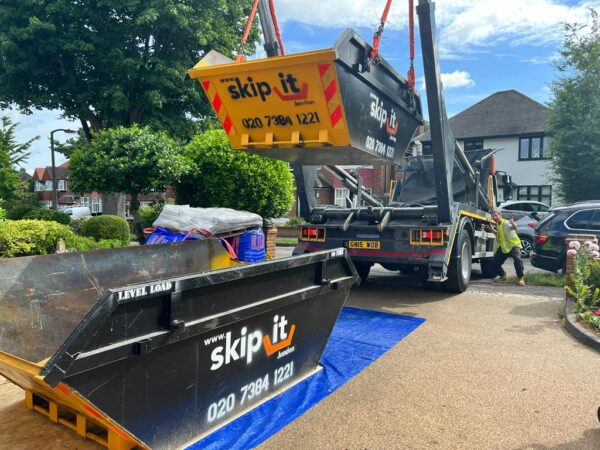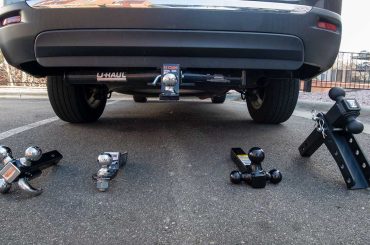Table of Contents
Skip It is not just another waste removal service; it’s a commitment to environmental responsibility and financial efficiency. As a diverse, family-run business, Skip It has established itself as a reliable and adaptable service provider in the waste management industry. This article will guide you through the essential tips and strategies to use Skip It for maximum benefits, focusing on how to save money and reduce waste effectively.
Understanding Skip It Services
Skip It is a waste management company with a strong commitment to sustainability and exceptional customer service. Their extensive array of offerings encompasses regular household waste collection and large-scale commercial waste disposal, effectively addressing diverse client requirements through their adaptable skip hire Wimbledon solutions.
Benefits of Efficient Waste Management
Environmental Impact:
- Reduction in Landfill Waste: Efficient waste management significantly decreases the amount of waste sent to landfills. This reduction is crucial because landfills are major sources of greenhouse gas emissions, particularly methane, a potent greenhouse gas.
- Promotion of Recycling and Reuse: Effective waste management involves separating recyclable materials from general waste. This segregation ensures that materials such as paper, plastic, metal, and glass are recycled, reducing the need for new raw materials and conserving natural resources.
- Conservation of Ecosystems: By reducing waste and promoting recycling, we lessen the impact on natural habitats. This conservation is vital for maintaining biodiversity and protecting ecosystems from the detrimental effects of excessive waste production and improper disposal.
Financial Benefits:
- Cost Savings for Individuals: Efficient waste management practices, such as recycling and composting, can significantly lower garbage disposal costs for households. By reducing the amount of waste produced, individuals can often lower their garbage collection fees.
- Reduced Expenses for Businesses: Businesses that implement effective waste management strategies can experience substantial cost savings. This is because the cost of waste disposal can be a significant expense for businesses, particularly those that produce a large amount of waste. By minimising waste generation and increasing recycling efforts, businesses can reduce disposal costs and sometimes profit from selling recyclable materials.
- Long-Term Economic Benefits: On a broader scale, efficient waste management contributes to a more sustainable economy. By fostering a circular economy, where waste is minimised and materials are reused and recycled, we can reduce the overall environmental impact and create sustainable business practices. This shift not only benefits individual businesses and consumers but also contributes to the overall health of the global economy.
How to Utilize Skip It Effectively
Tips for Efficient Use:
- Schedule Pickups Wisely: Plan and schedule waste pickups according to your needs. This helps in avoiding the accumulation of waste and ensures timely disposal.
- Segregate Waste: Properly segregate waste into recyclables, organic waste, and general trash. This not only facilitates efficient recycling but also improves the overall efficiency of the waste management process.
Reducing Unnecessary Waste:
- Minimize Waste at the Source: Implement practices to reduce waste generation, like using reusable items, avoiding single-use plastics, and purchasing products with minimal packaging.
- Composting: For organic waste, consider composting. This not only reduces the amount of waste needing disposal but also provides nutrient-rich compost for gardens.
- Educate and Inform: Regularly educate yourself and those around you about the importance of reducing waste and the best practices to do so. This collective effort can significantly lower the overall waste generated.
Cost-Saving Strategies with Skip It
Skip Its services are often more cost-effective than traditional waste removal due to volume-based pricing and efficient operations. To save money with Skip It, choose a service plan that matches your waste output, maximise recycling to reduce general waste costs, consider bulk waste options for larger disposals, and stay informed about new services and promotions.
Also Read: How to Make Money from Your Old Plastic Bottles?
Common Mistakes to Avoid
To effectively avoid common waste management mistakes with Skip It, it’s crucial to segregate your waste correctly according to their guidelines, ensuring recyclables are not contaminated with general waste. Selecting the right skip size is also key; assess your waste output to avoid overfilling or underutilising the provided bins, thus managing costs more efficiently. Additionally, maintaining a regular pickup schedule is essential to prevent waste accumulation, ensuring timely disposal and a cleaner environment. These practices help in maximising the efficiency of Skip Its services and contribute to a more sustainable waste management approach.
FAQs
How does Skip It help in reducing environmental impact?
Skip It actively contributes to reducing environmental impact by implementing several eco-friendly practices. These include prioritising recycling and composting to minimise waste sent to landfills, using energy-efficient vehicles and equipment to reduce carbon emissions, and educating customers on sustainable waste disposal practices. Their focus on waste diversion and reducing the carbon footprint of their operations plays a significant role in promoting environmental sustainability.
What are some tips for maximising cost savings with Skip It?
To maximise cost savings with Skip It, customers can:
- Conduct regular waste audits to identify unnecessary waste and optimise waste management practices.
- Adjust pickup schedules to match waste generation, avoiding unnecessary pickups.
- Segregate waste effectively to enhance recycling and reduce disposal costs.
- Utilise Skip Its consulting services for personalised advice on cost-effective waste management.
Can Skip Its services be customised for small businesses?
Yes, Skip It offers customisable services tailored to the unique needs of small businesses. This includes flexible pickup schedules, various bin sizes, and specific waste management plans that cater to the volume and type of waste generated by small businesses. Their approach ensures that small businesses receive efficient and cost-effective waste management solutions.
How does Skip It compare to traditional waste management services?
Skip It typically offers more sustainable and innovative solutions compared to traditional waste management services. This includes a stronger focus on recycling and composting, the use of more environmentally friendly equipment, and a commitment to customer education and sustainability. Their services are often more flexible and tailored to individual client needs, offering a modern approach to waste management.
What future innovations is Skip It planning to introduce in waste management?
While specific future innovations may depend on ongoing research and market trends, Skip It is likely to focus on integrating advanced technologies like AI and IoT for smarter waste management, developing more sustainable waste processing methods, and exploring new recycling technologies. They may also invest in electric or alternative fuel vehicles for their fleet to further reduce their environmental impact.
Conclusion
In conclusion, Skip It offers an invaluable service that goes beyond mere waste disposal. It’s about adopting a sustainable lifestyle, saving costs, and contributing to a healthier environment. By understanding and utilising Skip Its services effectively, customers can play a pivotal role in waste reduction and enjoy the financial benefits that come with it.





